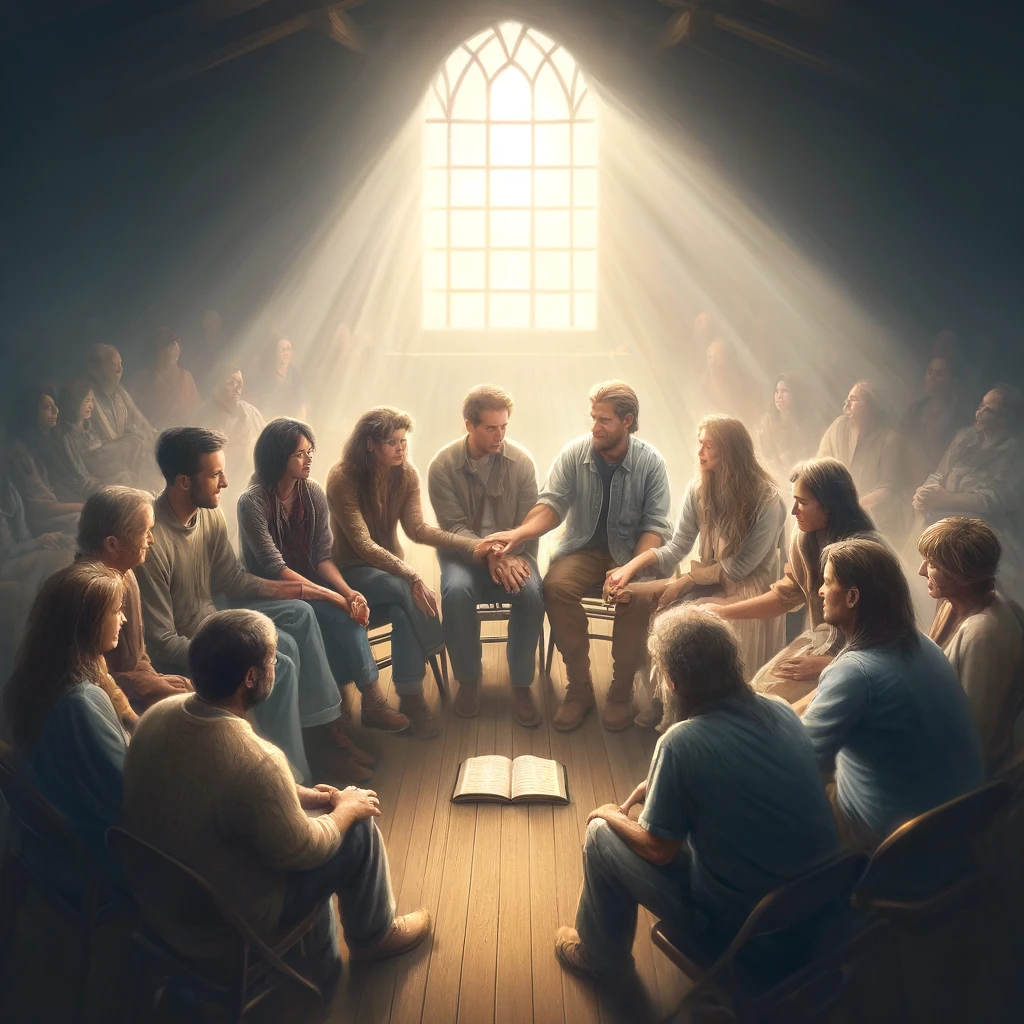NIRD Principle: Mutual Accountability

The NIRD principle of mutual accountability is central to the process of discipleship and underscores the importance of community in Christian life. It recognizes that spiritual growth and biblical living are not solitary endeavors but are best pursued within the context of supportive, truth-speaking relationships.
*If you haven’t read the Introduction to NIRD yet, start here 🙂
Biblical Foundation of Mutual Accountability
Scripture advocates for a life of openness and mutual support among believers. James 5:16 instructs Christians to confess their sins to each other and pray for each other so that they may be healed. This verse highlights the therapeutic and transformative power of confessing in a communal setting, where vulnerability is met with prayerful support rather than judgment.
Hebrews 10:24-25 further encourages believers to consider how to spur one another on toward love and good deeds, not giving up meeting together but encouraging one another. These interactions are not just for mutual encouragement but also serve as a check against spiritual complacency and moral drifting.
Accountability and Biblical Living
As believers aim to live lives that reflect their faith, accountability plays a crucial role. It involves:
- Setting Standards Together: In a community, believers can set standards based on biblical teachings that guide their actions. These standards are not arbitrary but are rooted in the scriptural call to live holy and loving lives.
- Regular Check-Ins: Effective accountability involves regular conversations where individuals can discuss their challenges, successes, and failures in meeting these standards. These check-ins provide opportunities for encouragement and gentle correction.
- Offering and Receiving Correction: As Proverbs 27:6 suggests, trustworthy friends who care enough to correct us are invaluable. Correction should always be offered in love and received in humility, which strengthens character and deepens communal ties.
The Role of Trust in Accountability
Trust is foundational for effective accountability. Discipleship relationships must be safe spaces where individuals feel comfortable sharing their weaknesses without fear of condemnation. Trust ensures that when corrections are made, they are received not as judgments but as aids to growth. It also means that encouragement is genuinely uplifting, coming from a known friend rather than a distant acquaintance.
Challenges and Temptations
The Christian life is marked by various challenges and temptations that can derail spiritual growth and biblical living. Accountability relationships serve as a vital support network during these times. Knowing that someone will ask about their progress or struggles can motivate believers to resist temptation and persevere in their commitments.
Support and Correction as God’s Grace
Accountability is a key mechanism through which God’s grace is experienced in the Christian community. It allows for God’s love and forgiveness to be made tangible through the support and encouragement of others. Additionally, when correction is needed, it is an expression of grace that helps individuals realign with God’s ways.
Continuous Cycle of Discipleship
As believers mature, they take on the role of providing accountability to others, continuing the cycle of discipleship. This cycle enriches the community, as more mature believers guide the less experienced, and fresh perspectives from new believers stimulate growth in others. Thus, mutual accountability is not just a principle for individual growth but a dynamic process that invigorates the entire community.
Mutual accountability in NIRD is about building a culture where believers are committed to growing together in faith and conduct. It’s about creating a community where the love of Christ is lived out in practical ways, through both encouragement and loving correction, fostering an environment where all can grow in grace and truth.
Keep Learning!
In exploring the dynamic interplay between neuroscience and Christian discipleship, we uncover a profound alignment between biblical principles and modern scientific insights. Through the frameworks of Neuroscience Informed Christian Counseling® (NICC) and Neuroscience Informed Relational Discipleship (NIRD), we see how deeply relational God’s design for us is, meant to thrive in community and continuous growth.
If you are intrigued by how these innovative approaches can transform personal and communal spiritual lives, I invite you to delve deeper into Neuroscience Informed Christian Counseling® and Neuroscience Informed Relational Discipleship. Explore more about how these methodologies can enrich your faith journey and strengthen your community bonds.
newsletter
Sign up and receive my updated article posts about neurotheology, sex therapy, and therapeutic friendship.
No charge. No spam. Only love.
View this profile on InstagramJosh Spurlock (@talk2spurlock) • Instagram photos and videos
© Josh Spurlock|Privacy Policy|Terms|sitemap|Mycounselor.online